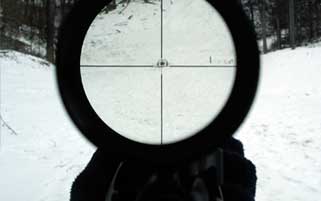Mission
To positively impact military schools, with access to readily available information for thought-provoking research, enquires and high-quality learning opportunities.
The Caribbean Military Academy Library (CMAL) is the epicentre of information for the preservation, documentation and public engagement of military history. One of the main goals of the CMAL is to provide a medium through which the public can access military resource materials through its Main library and several sub libraries that collects material pertinent to military history, its study, research, strategy and training. It has a user centred approach in all aspect of its programs and services positioning itself for the needs of its community in both physical and online environment. CMAL is dedicated to serve its global community with its extensive resources and digital collection. Its CMAL mandate to seek, identify and establish partnerships with other libraries locally and internationally, with collections that are relevant to the subject matters covered under the schools of the CMA in an effort to ensure that the library remains relevant and trending with contemporary research.
To positively impact military schools, with access to readily available information for thought-provoking research, enquires and high-quality learning opportunities.


To become the premier Military library which promotes intellectual growth and creativity through continuous reinvention with a focus on information and activities that benefit learning and research? Our aim is to meet the needs of present and future generations of students by preserving materials which will provide access to information and resources; also teaching critical evaluation skills by offering research assistance.
As a visitor to the CMA Libraries, you have limited access to Library resources. Limited access is defined as onsite usage of print collections and unique digital collections. You must abide by Jamaica Defence Force security regulations which govern access to Camp.
The Libraries will be open during such periods of the year and during such hours as may from time to time be prescribe:
| Day | Library Open |
|---|---|
| Monday-Friday | 0745-1800 |
| Saturday | 0900-1600 |
| Sunday | 0900-1600 |
The Library aims to provide an environment conducive to study and reflection. To achieve this goal, all members of the Library staff are authorized to require users to adhere to the Library’s rules and regulations.
The Campus Librarian may exclude from the Library, or suspend from its use, any reader who breaks these rules. Serious or persistent breaches may be reported to the President or Vice President.
The Caribbean Military Academy includes the current students, faculty, and staff of the Academy as well as all other servicemembers. All other visitors may have access to the CMA Libraries as described below:
The Librarian approves visits. Submit an CMA Library Visit Request Form with the date, time, and purpose of your visit. Visits are only approved for a specific date, time, and purpose. Open, unlimited access will not be approved. University activities and prior commitments also impact the approval of visits.
Definition: Collections of internationally or nationally significant depth and breadth which the Library will continue to develop.
Management: Heritage collections will be actively developed as live collections, able to respond to current teaching and research. Access to material will be via the most appropriate route, but outright ownership will always be considered. Items will not normally be withdrawn from these collections, but measures will be taken to preserve material of all formats contained within them. To develop these collections, items may be transferred in from elsewhere through collaborative collection development schemes, or received as donations.
Definition: Collections which do not have sufficient depth or breadth to be of national significance, but which are required to meet the needs of current research and teaching. Material will only be retained within these collections for as long as it is required for teaching or research.
Management: Items within self-renewing collections will be regularly considered for withdrawal from Library stock. Access to material will be via the most appropriate route. These collections will not generally require measures to ensure long term preservation, however items may be digitized to facilitate current teaching or research. Material will not be transferred into these collections from elsewhere through collaborative collection development schemes, or received as donations, unless to satisfy a specific academic need.
Definition: These are collections which have neither historic strength, nor relevance to current teaching and research. Some of these collections will be considered for withdrawal. In this context a ‘collection’ may be either large or small, and may be confined to one subject or physical location, or may be distributed across the different school library.
The Caribbean Military Academy Library’s collections are central to the learning, teaching and research of the Academy. They provide the information base for the academic work and are a repository for the Academy research outputs, learning resources and institutional memory. The Library will continue to curate its rich assets, combining print and digital to ensure the currency, longevity, depth and breadth of information appropriate to the needs of a major research-intensive university.
Many of our main collections however have great historical strength and breadth. We have also built up over the recent electronic era collections of online database, journals and digitized content to support current research and teaching in the Academy.
In this rapidly changing environment, we recognize that we cannot and should not attempt to build or maintain collections in all areas equally. We need to target our collection building, digitization and preservation on areas we have prioritized as the most important to the Academy, and be guided by these principles in curating our electronic as well as our physical collections.
To meet this challenge we have embarked on a major programme of categorizing our physical and digital collections to establish where our true strengths lie. Once strengths have been identified we will use this categorization to guide all decisions relating to purchase, subscription, location, preservation and digitization of our collections, whether analogue or digital. Collections will be categorized as follows.
Digital collections are complex and varied in their origin, content types and preservation needs. Some may be created, owned and hosted by the Academy, including items we have digitized from our own physical collections, where the originals are often rare or unique.
With all these materials entrusted to our care we need to ensure that mechanisms and resources for the digital preservation of this content are in place as required.The application of our Collections Strategy to our digital material means we will:
Collections will be developed and managed in keeping with the principles outlined above. The Library undertakes to consult academic colleagues on collections that relate to their areas of teaching and research primarily through Schools Library Representatives, and also, where appropriate, Directors of Research and Heads of School
Our physical collections will continue to be very important into the foreseeable future. The maintenance of these collections will entail a commitment to physical preservation where feasible and desirable, and/or to digitization, both to enable access and for the purpose of preservation.
The application of our Collections Strategy to our physical collections means we will:
The Library will make all of its resources easily discoverable to its users using single search functionality where possible.
The Library will maximize the availability of its collections to the University community and external researchers, as far as licensing conditions or other restrictions permit.
Caribbean Military Academy Library’s mission is to collect, create, deliver, and preserve collections for current and future research, learning and teaching activities. Collections historically managed by libraries were acquired in physical form, but increasingly content acquisition is of digital files. Digital content is at risk of being lost or unusable due to rapid changes in technology and infrastructure. There is a reputational risk if the Library does not address and mitigate the risks presented to the storage and access to digital content
Digital Preservation is a distributed activity between the Library and IT with specific groups and individuals responsible for elements of the life-cycle. Digital preservation may be one of many activities an individual is responsible for within their remit so coordination and communication across teams is essential to the delivery and safeguarding of content. As the digital preservation landscape is constantly changing so will roles, responsibilities and designated leads for a specific area. Strategic planning includes defining current capacity within the library, defining roles and responsibilities and forecasting future needs and staffing..
Key Principles of Digital Preservation Activities
The Ask a Librarian email reference service is provided to CMAL users with mission-related inquiries that are brief or factual in nature. In most cases we will respond to questions within two working days. You may submit a question anytime!
Please use this form to submit your inquiry. Please see the specific information we request below. It is not necessary to address every point; however, we can most effectively help you if you provide us with as many details as possible.
Email us at: altheawalker2@gmail.com or althea.walker@jdf.mil.jm
Library staff will guide you to the collections that you will need for your research, circulation services, reference services, online information services, you may have limited photocopying of library materials. Services include the use of wireless network, loan of materials, research services, interlibrary loan, or other privileges and services granted to primary users. CMAL personnel have first priority at all times. The Library will provide a Document Supply service and support reciprocal visiting and borrowing arrangements with other libraries, to allow our members to access material not held at CMAL. Some of our services are but not limited to: